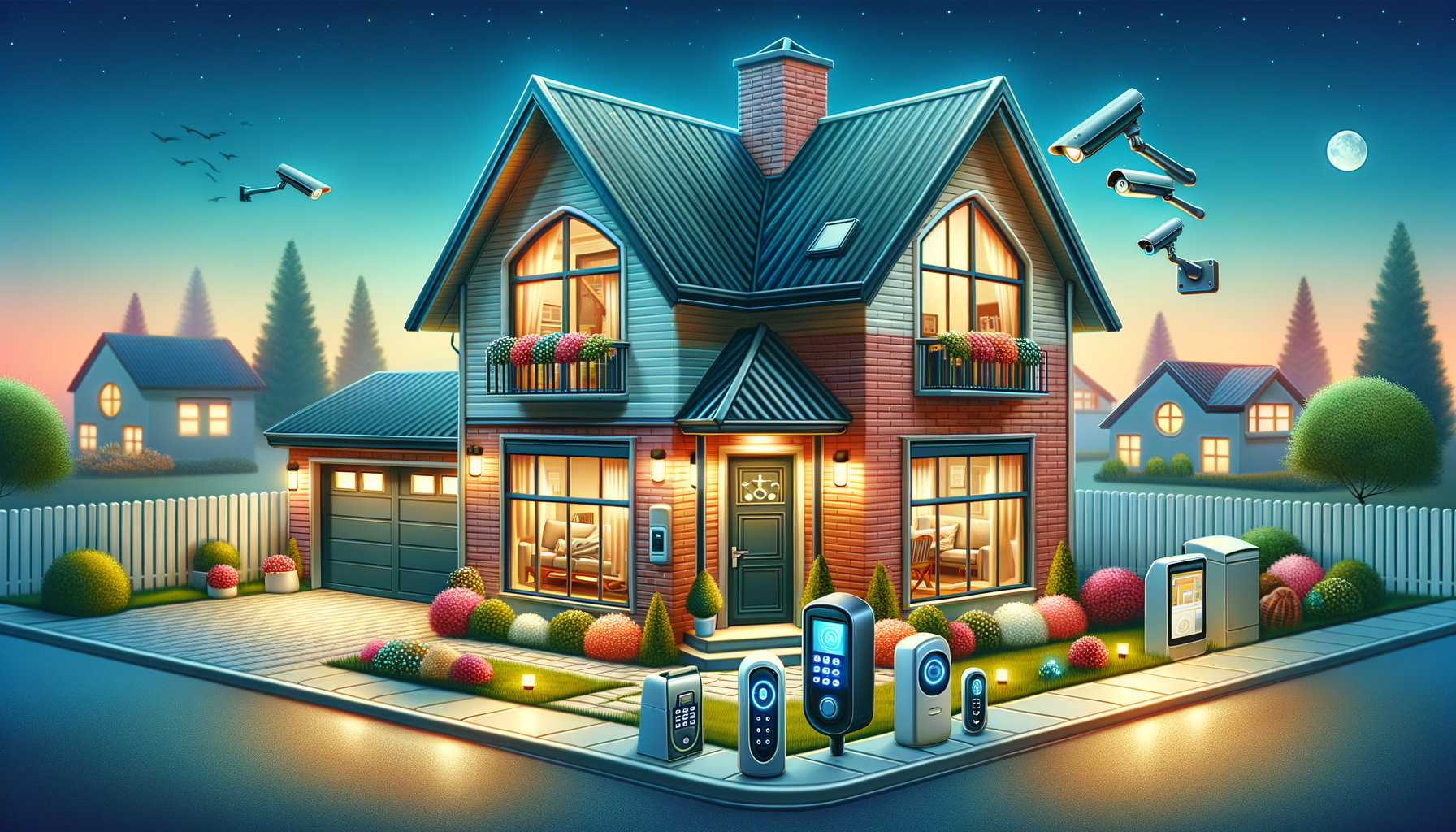The Importance of Home Security
In today’s world, the importance of home security cannot be overstated. With rising concerns about safety and the protection of personal property, investing in a reliable home security system is a proactive step towards safeguarding your family and possessions. Home security systems are designed to deter potential intruders, provide real-time alerts, and ensure that you have peace of mind whether you are at home or away.
Statistics show that homes without a security system are significantly more likely to be targeted by burglars. The presence of visible security measures, such as cameras and alarms, can act as a powerful deterrent. Moreover, modern home security solutions offer more than just protection against theft. They can also monitor for fire, carbon monoxide, and other emergencies, providing comprehensive safety for your household.
Investing in home security is not just about preventing loss; it’s about creating a secure environment where your family can thrive. With various options available, from basic alarm systems to advanced smart home integrations, you can tailor your security setup to meet your specific needs and budget.
Understanding Different Types of Home Security Systems
When it comes to home security, there is no one-size-fits-all solution. Understanding the different types of systems available can help you make an informed decision. Here are some common options:
- Monitored Alarm Systems: These systems are connected to a monitoring center that alerts authorities in case of an emergency. They offer a high level of security but may require a subscription fee.
- Unmonitored Alarm Systems: These systems trigger a loud siren to scare off intruders. They are more affordable but rely on neighbors or passersby to respond.
- Wireless Security Systems: Easy to install and configure, these systems use wireless technology to communicate between devices. They are flexible and can be expanded with additional sensors.
- Smart Home Security Systems: Integrating with your smart devices, these systems offer features like remote monitoring, real-time alerts, and automation through mobile apps.
Each type of system has its pros and cons, and the right choice depends on your specific security needs and lifestyle. Whether you prioritize ease of use, affordability, or advanced technology, there is a home security system that can meet your requirements.
Key Features to Look for in Home Security Systems
Choosing a home security system involves evaluating key features that align with your security goals. Here are some essential features to consider:
- 24/7 Monitoring: Continuous monitoring ensures that your home is protected at all times, even when you are not there.
- Mobile Access: The ability to control and monitor your security system from your smartphone or tablet adds convenience and peace of mind.
- Video Surveillance: Cameras provide visual evidence of any incidents and can help in identifying intruders.
- Environmental Sensors: Detecting smoke, fire, and carbon monoxide can prevent disasters and save lives.
- Smart Home Integration: Seamlessly integrating with other smart devices enhances automation and control.
By focusing on these features, you can ensure that your home security system offers comprehensive protection and fits seamlessly into your daily routine.
The Role of Technology in Modern Home Security
Technology plays a pivotal role in the evolution of home security systems. With advancements in connectivity and smart devices, homeowners can now enjoy enhanced security features that were once considered futuristic.
Smart cameras, for example, offer high-definition video feeds, night vision, and motion detection, allowing you to monitor your home in real time. These cameras can be accessed remotely, providing you with the ability to check on your property from anywhere in the world.
Moreover, smart locks and doorbell cameras have revolutionized how we secure entry points. These devices allow for keyless entry and provide alerts when someone approaches your door, ensuring that you are always aware of who is coming and going.
Artificial intelligence is also making its mark on home security. AI-powered systems can learn and adapt to your routine, reducing false alarms and enhancing the accuracy of threat detection. As technology continues to advance, the future of home security looks promising, with even more innovative solutions on the horizon.
Cost Considerations and Budgeting for Home Security
While the safety of your home and family is priceless, budgeting for a home security system requires careful consideration. The cost of home security systems can vary widely based on the type of system, the features included, and any ongoing monitoring fees.
Initial costs typically include equipment and installation. Basic systems may be more affordable, while comprehensive setups with professional installation can be more expensive. Monthly monitoring fees are another factor to consider, especially for systems that offer 24/7 professional monitoring.
It’s important to weigh the benefits against the costs. Investing in a reliable security system can potentially save you money in the long run by preventing theft and damage. Additionally, some insurance providers offer discounts for homes equipped with security systems, further offsetting the cost.
To make the most of your investment, consider your specific security needs and prioritize features that offer the greatest value. By doing so, you can create a secure environment for your family without breaking the bank.



Leave a Reply